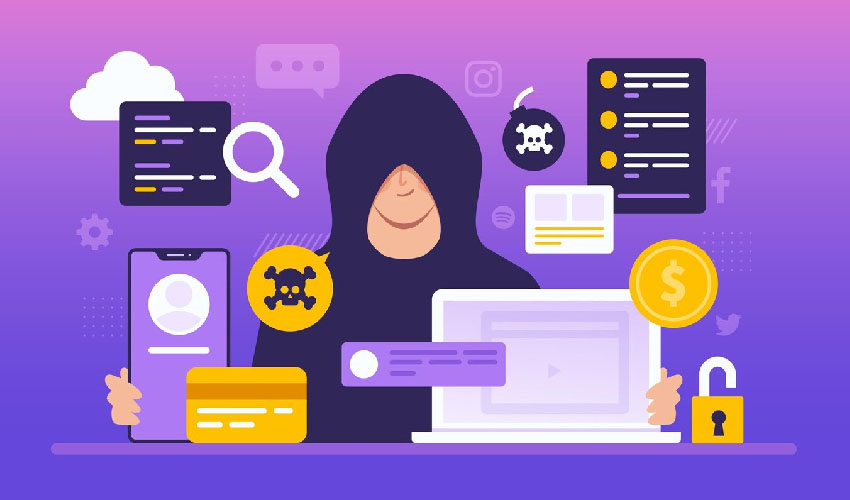Table of Contents
Introduction to On-Demand App Clone Development
In the rapidly evolving landscape of mobile applications and technology, businesses are constantly seeking innovative ways to meet the growing demands of consumers. One such approach that has gained significant traction in recent years is On-Demand App Clone Development. This revolutionary concept allows businesses to emulate the success of established on-demand service applications by creating a replica tailored to their specific needs.
The Evolution of On-Demand Services
The surge in the popularity of on-demand services can be attributed to the changing preferences and lifestyles of consumers. Modern consumers crave convenience, and on-demand services cater to this demand by providing instant access to a wide range of products and services. Whether it’s transportation, accommodation, food delivery, or other services, on-demand apps have become an integral part of daily life.
The success stories of pioneering on-demand platforms like Uber, Airbnb, and Instacart have inspired businesses across various industries to explore similar models for their services. Recognizing the potential of these on-demand solutions, many entrepreneurs are turning to On-Demand App Clone Development as a strategic approach to enter the market swiftly and efficiently.
Understanding On-Demand App Clone Development
At its core, On-Demand App Clone Development involves the creation of a duplicate or clone of a successful on-demand service application. This process allows businesses to replicate the functionalities and features of a proven app while incorporating customizations to suit their unique requirements. The idea is to leverage the success of existing models and tailor them to specific niches or industries.
These clones are not mere imitations; they are carefully crafted replicas that offer businesses a head start in the highly competitive app market. By adopting this approach, companies can focus on customization and branding rather than starting the development process from scratch, ultimately saving time and resources.
Key Advantages of On-Demand App Clone Development
- Rapid Development Time: One of the primary advantages of On-Demand App Clone Development is the significant reduction in development time. Creating an app from scratch involves extensive research, planning, and development cycles. In contrast, cloning an existing app allows developers to skip the foundational steps, enabling quicker deployment.
- Cost-Effectiveness: Traditional app development can be a capital-intensive process, requiring substantial investments in research, design, and development. On the contrary, cloning an existing app streamlines the development process, resulting in cost savings. Businesses can allocate resources more efficiently, focusing on marketing and user acquisition.
- Proven Success Model: When businesses opt for on-demand app clone development, they are essentially adopting a proven business model. The success of the original app in the market serves as validation, reducing the risk associated with introducing a new service.
- Easy Scalability: On-demand app clones are designed with scalability in mind. As businesses grow and user bases expand, these clones can be easily scaled to meet increasing demands. This scalability ensures that the app remains robust and responsive to changing market dynamics.
The On-Demand App Clone Development Process
While the advantages of on-demand app clone development are clear, the process itself involves several crucial steps:
- Market Research: Before embarking on the development journey, thorough market research is essential. Businesses must identify their target audience, understand their needs, and analyze competitors. This information forms the foundation for customizing the cloned app to offer unique value.
- Customization: While the core functionalities are replicated from the original app, customization is paramount. This step involves tailoring the app to align with the brand identity, user experience preferences, and unique offerings of the business. Customization goes beyond aesthetics, encompassing features that set the app apart from competitors.
- Development and Testing: The development phase begins with coding based on the chosen clone model. Rigorous testing follows to identify and rectify any bugs or issues. Quality assurance ensures a seamless user experience and guards against potential pitfalls.
- Deployment: With the app successfully passing testing, it is ready for deployment. Launching the app in the market requires a well-planned strategy, encompassing marketing, promotional efforts, and user engagement initiatives. An effective launch strategy is crucial for attracting the initial user base.
- Continuous Improvement: Post-launch, the journey doesn’t end. Ongoing monitoring and updates are critical. User feedback is gathered and analyzed to make continuous improvements to the app, ensuring it remains competitive and aligned with evolving user expectations.
Impact on Businesses
The adoption of on-demand app clone development has profound implications for businesses across various sectors:
- Time-to-Market Advantage: One of the most significant advantages is the time-to-market advantage. By leveraging existing successful models, businesses can significantly reduce the time required to introduce their services. This accelerated timeline is crucial in gaining a competitive edge in fast-paced markets.
- Cost Efficiency: The cost savings associated with on-demand app clone development allow businesses to reallocate resources strategically. Instead of hefty investments in initial development, companies can focus on marketing, user acquisition, and other aspects that contribute to the overall success of the service.
- Reduced Risk: The use of a proven business model inherently reduces the risk of failure. The success of the original app serves as a testament to the viability and demand for the service, providing businesses with a solid foundation for success.
- Enhanced Scalability: Scalability is a crucial factor for any business looking to expand its services. On-demand app clones are designed with scalability in mind, allowing businesses to adapt to growing user bases and changing market demands seamlessly.
Popular On-Demand Services and Their App Clone Versions
The on-demand economy has witnessed an exponential surge in recent years, transforming how consumers access services. From transportation to food delivery, the on-demand model has permeated various industries, giving rise to a multitude of successful services. In this comprehensive exploration, we delve into some of the most popular on-demand services and examine their app clone versions, shedding light on the thriving ecosystem of on-demand solutions.
-
Ride-Sharing Services: Uber and Its Clones
Original Service: Uber revolutionized the transportation industry by introducing a convenient, app-based ride-sharing platform. With millions of users globally, Uber has become synonymous with modern urban transportation.
App Clone Versions: Lyft, Ola, and Grab are prominent clones of Uber, offering similar ride-sharing services with slight variations. While Lyft focuses on a more community-oriented approach, Ola dominates the Indian market, and Grab is a leading player in Southeast Asia.
-
Accommodation: Airbnb and Its Clones
Original Service: Airbnb disrupted the traditional hospitality industry by connecting travellers with unique accommodation options provided by hosts. The platform gained popularity for its diverse offerings, from private rooms to entire homes.
App Clone Versions: Vrbo, Wimdu, and FlipKey are notable clones of Airbnb, each catering to a specific niche within the short-term rental market. Vrbo focuses on entire homes, Wimdu emphasizes cultural experiences, and FlipKey offers a range of vacation rentals.
-
Food Delivery: DoorDash and Its Clones
Original Service: DoorDash emerged as a major player in the food delivery sector, providing a platform for users to order from their favourite restaurants and have meals delivered to their doorstep.
App Clone Versions: Grubhub, Postmates, and Deliveroo are popular clones of DoorDash, each bringing its unique twist to the food delivery landscape. Grubhub focuses on a wide range of restaurant options, Postmates offers delivery of various items beyond food, and Deliveroo operates globally with a focus on premium restaurants.
-
Grocery Delivery: Instacart and Its Clones
Original Service: Instacart revolutionized grocery shopping by allowing users to order groceries online and have them delivered to their doorstep. The platform collaborates with various grocery stores, providing users a wide range of choices.
App Clone Versions: Shipt, Peapod, and FreshDirect are notable clones of Instacart, each catering to specific markets and demographics. Shipt focuses on personalized shopper experiences, Peapod operates in the northeastern United States, and FreshDirect delivers fresh, high-quality groceries.
-
Freelance Services: Upwork and Its Clones
Original Service: Upwork transformed the way businesses find freelance talent by creating a platform that connects employers with a diverse pool of freelancers across various fields.
App Clone Versions: Freelancer, Guru, and Fiverr are popular clones of Upwork, each offering a platform for freelancers and employers to collaborate. Freelancer emphasizes competitive bidding, Guru focuses on curated freelance talent, and Fiverr specializes in affordable services starting at $5.
Fitness: Peloton and Its Clones
Original Service: Peloton: Peloton disrupted the fitness industry by offering interactive, on-demand fitness classes through its stationary bikes and treadmills. The platform gained popularity for its immersive and engaging workout experiences.
App Clone Versions: Zwift, Echelon, Tonal: Zwift, Echelon, and Tonal are prominent clones of Peloton, each providing a unique take on connected fitness. Zwift focuses on virtual cycling and running experiences, Echelon offers a range of connected fitness equipment, and Tonal specializes in smart strength training.
Streaming: Netflix and Its Clones
Original Service: Netflix: Netflix revolutionized the entertainment industry by introducing a streaming platform that allows users to access a vast library of movies, TV shows, documentaries, and original content.
App Clone Versions: Hulu, Amazon Prime Video, Disney: Hulu, Amazon Prime Video, and Disney+ are well-known clones of Netflix, each with its unique content offerings and subscription models. Hulu combines live TV with on-demand content, Amazon Prime Video includes exclusive shows and movies, and Disney+ focuses on family-friendly content.
Security Measures in On-Demand App Clone Development
As businesses increasingly embrace on-demand app clone development to swiftly launch services in the market, the critical aspect of security cannot be overstated. In a digital landscape rife with cybersecurity threats, safeguarding user data, transactions, and the overall integrity of the platform is paramount. In this comprehensive guide, we delve into the intricacies of on-demand app clone security, exploring key vulnerabilities and presenting a thorough overview of advanced security measures to fortify your application.
Understanding the Security Landscape
- Data Encryption: Implementing robust encryption mechanisms is foundational for on-demand app security. Utilizing protocols like SSL/TLS ensures that data transmitted between the user and the server remains encrypted, mitigating the risk of unauthorized access.
- Secure Authentication and Authorization: Establishing secure authentication and authorization processes is crucial. Multi-factor authentication (MFA) adds an extra layer of security, requiring users to provide multiple forms of identification before gaining access. Additionally, robust authorization mechanisms ensure that users only access the functionalities relevant to their roles.
- Secure Data Storage: Protecting data at rest is as vital as securing it in transit. Utilize secure storage practices, such as encryption of databases and sensitive information, to prevent unauthorized access in case of a data breach.
- Regular Security Audits: Conducting regular security audits helps identify vulnerabilities and weaknesses in the system. This proactive approach enables timely remediation of potential threats, ensuring the overall security posture of the on-demand app clone.
- API Security: Many on-demand applications rely on APIs for seamless integration with third-party services. Ensuring the security of these APIs is paramount to prevent data breaches and unauthorized access. Implement authentication tokens, rate limiting, and regular monitoring to safeguard API endpoints.
Advanced Security Measures in On-Demand App Clone Development
- Penetration Testing: Penetration testing, or ethical hacking, involves simulating real-world attacks on the application to identify vulnerabilities. Engage with professional penetration testers to assess the resilience of your on-demand app clone and address any potential weaknesses.
- Blockchain Technology: Integrating blockchain technology enhances the security of financial transactions and user data. Blockchain provides a decentralized and tamper-resistant ledger, ensuring the integrity of sensitive information and fostering trust among users.
- Biometric Authentication: Elevate user authentication by incorporating biometric measures such as fingerprint or facial recognition. Biometric authentication adds an extra layer of security, making it significantly harder for unauthorized users to gain access.
- Real-Time Monitoring and Incident Response: Implement real-time monitoring tools to detect unusual activities or security breaches promptly. Coupled with a robust incident response plan, these measures enable a swift and effective response to security incidents, minimizing potential damage.
- Machine Learning for Anomaly Detection: Leverage machine learning algorithms to analyze user behavior and identify anomalies that may indicate security threats. By continuously learning from user patterns, machine learning enhances the app’s ability to detect and respond to suspicious activities.
- Compliance with Data Protection Regulations: Adhering to data protection regulations such as GDPR or HIPAA is not just a legal requirement but a critical security measure. Ensure that your on-demand app clone is designed and maintained in compliance with relevant data protection standards, safeguarding user privacy and trust.
- Regular Software Updates and Patch Management: Outdated software is a breeding ground for security vulnerabilities. Regularly update the application and its dependencies, addressing known vulnerabilities and applying patches promptly to fortify the app against emerging threats.
Legal and Ethical Aspects of On-Demand App Cloning
As businesses increasingly embrace on-demand app clone development to expedite their entry into competitive markets, it becomes imperative to explore the legal and ethical dimensions surrounding this innovative approach. This article delves into the nuanced landscape of on-demand app cloning, examining the legal considerations, intellectual property concerns, and ethical implications that businesses must navigate to ensure a responsible and sustainable development process.
Legal Considerations in On-Demand App Cloning
- Intellectual Property Rights: One of the primary legal concerns in on-demand app cloning revolves around intellectual property (IP) rights. Cloning an existing app may infringe on copyrights, trademarks, or patents owned by the original developer. Before embarking on clone development, it is crucial for businesses to conduct a comprehensive IP search and clearance to ensure they are not violating any existing rights.
- Licensing and Agreements: Many successful apps operate under specific licensing agreements or terms of use. Cloning such apps without a proper understanding of these agreements can lead to legal complications. Businesses must carefully review and negotiate licensing terms with the original developers to secure the legal right to create a clone.
- Data Protection and Privacy: On-demand apps often involve the collection and processing of user data. Cloning an app without due diligence on data protection laws can result in severe legal consequences. Businesses must adhere to regulations such as the General Data Protection Regulation (GDPR) or other regional data protection laws to safeguard user privacy.
- Consumer Protection Laws: Cloned apps must comply with consumer protection laws to ensure transparency, fairness, and ethical business practices. Misleading marketing, hidden fees, or poor service quality can lead to legal repercussions and damage the reputation of the business.
Ethical Considerations in On-Demand App Cloning
- Transparency and User Consent: Cloning an app often involves replicating features and functionalities that users are familiar with. However, businesses must transparently communicate the cloning process to users and obtain their consent. Failing to do so may raise ethical concerns related to deception and trust.
- Fair Competition: While competition is inherent in business, on-demand app cloning raises questions about fair competition. Businesses must ensure that their cloned app competes fairly in the market without resorting to unethical practices that harm competitors or exploit legal loopholes.
- Worker Rights and Fair Labor Practices: On-demand services often rely on a network of gig workers. Businesses involved in cloning apps must prioritize fair labor practices, ensuring that workers are treated ethically, compensated fairly, and provided with adequate benefits. This includes addressing issues related to worker classification and job security.
- Social Impact and Accessibility: The social impact of on-demand app cloning cannot be ignored. Businesses should assess the potential consequences of their cloned services on local economies, employment, and societal well-being. Additionally, ensuring accessibility for all users, including those with disabilities, is an ethical imperative.
Future Prospects and Evolution of On-Demand App Clone Development
In the ever-evolving landscape of technology, the on-demand economy has become a cornerstone of modern business models. As businesses continue to embrace digital transformation, the future prospects of on-demand app clone development are incredibly promising. In this article, we explore the anticipated evolution of on-demand app clones, the emerging trends, and the potential impact on various industries.
The Evolution of On-Demand App Clone Development
- Integration of Advanced Technologies: Future on-demand app clones are expected to integrate cutting-edge technologies such as artificial intelligence (AI), machine learning (ML), and augmented reality (AR). These technologies will enhance user experiences, personalize services, and optimize overall app performance.
- Blockchain for Enhanced Security: Security concerns have always been paramount in the digital realm. The integration of blockchain technology in on-demand app clones can provide enhanced security, transparency, and accountability, ensuring the protection of user data and transactions.
- Cross-Industry Integration: On-demand app clones are likely to transcend industry boundaries, leading to cross-industry integrations. For instance, a successful on-demand service model in one sector may inspire innovations in unrelated fields, creating new and diverse service offerings.
- Voice and Gesture Recognition: The future of on-demand app clones may witness the widespread adoption of voice and gesture recognition technologies. This would simplify user interactions, making the apps more accessible and user-friendly.
Mitigating Legal and Ethical Risks in On-Demand App Cloning
- Legal Consultation: Engaging legal professionals with expertise in intellectual property, technology law, and data protection is essential. Legal consultations can help businesses navigate the complex legal landscape and ensure compliance with relevant regulations.
- Thorough Due Diligence: Before initiating on-demand app cloning, thorough due diligence is paramount. This includes conducting a detailed analysis of existing IP rights, licensing agreements, and compliance with consumer protection and data privacy laws.
- User Education and Transparency: Open and transparent communication with users is key. Educating users about the app cloning process, its benefits, and any potential service changes can foster trust and mitigate ethical concerns.
- Ethical Business Practices: Adopting ethical business practices goes beyond legal compliance. Businesses should prioritize fair competition, fair labor practices, and a positive social impact, aligning their operations with principles of corporate social responsibility.
Conclusion
The future of on-demand app clone development holds immense promise, driven by advancements in technology, changing consumer preferences, and the need for innovative business solutions. As these clones evolve, businesses across various industries will need to adapt to stay competitive. The integration of emerging technologies, the exploration of new service offerings, and a commitment to meet evolving consumer needs will be key factors in the continued success of on-demand app clones. Embracing the trends and preparing for the future will undoubtedly position businesses at the forefront of the on-demand economy, shaping the way services are accessed, delivered, and experienced.
Thanks for reading our post “On-Demand App Clone Development”. Please connect with us to learn more about On-Demand App Clone.














